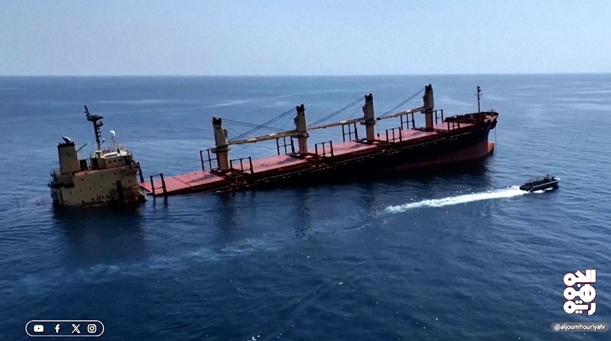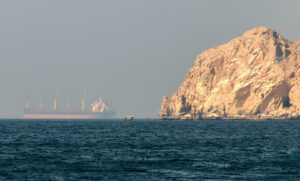Several submarine cables in the Red Sea have been cut affecting 25% of data traffic, a telecoms company say. Hong Kong-based HGC Global Communications said it had taken measures to reroute traffic after four of the 15 cables were recently severed.
The company said in response to the recent submarine cable damage incident in the Red Sea, it has swiftly taken actions to mitigate through rerouting impacted traffic in the region.
“This is a demonstration of HGC’s dedication in monitoring the situation and take the necessary steps to protect clients’ connectivity.”
HGC did not say how the cables had been damaged or who was responsible. The cause is not yet clear.
HGC Global Communications, one of Hong Kong’s largest telecom operator and ICT solution provider, said that four of 15-plus submarine cables in the Red Sea had been cut, causing a “significant” disruption to an estimated quarter of traffic.
Around 15% of Asia traffic goes west-bound, while 80% of those traffic will pass through these submarine cables in the Red Sea.
Yemen’s Houthis have already disrupted global supply chains by attacking commercial vessels in the crucial waterway.
The past experience with the cut in the submarine cables after Taiwan Earthquake in 2006, which the majority of Hong Kong traffic was affected, causes serious concerns.
Reports last week suggested the Houthis had been behind the damage to the cables, allegations the Houthis deny.
The group instead attributed any cable damage to U.S and British military strikes.
The International Cable Protection Committee (ICPC), the organisation promoting submarine cable protection and resilience, notes with concern reports of submarine cable damage in the Red Sea.
The ICPC urges operators to investigate the causes of damage to Red Sea cables and engage with governments about the implications of such damage. The global submarine cable network of more than 400 cable systems and 1.5 million kilometres of submarine cables cross the oceans worldwide.
“This network underpins our daily lives, carrying more than 99% of all digital data traffic worldwide, including the Internet. On average around 150 faults occur each year, which are mostly due to accidental human activities such as fishing and anchoring,” reads the ICPC statement.
The ICPC also urges governments to coordinate with operators to identify and mitigate causes of damage, expedite permits for repairs, and provide security for vessels engaged in such repairs.
Houthi attacks on commercial ships in the Red Sea are doubling shipping costs to the United States and having real human impacts—increasing the costs of food, medicine, and fuel. pic.twitter.com/8D7nyEI0cE
— Department of State (@StateDept) March 2, 2024



